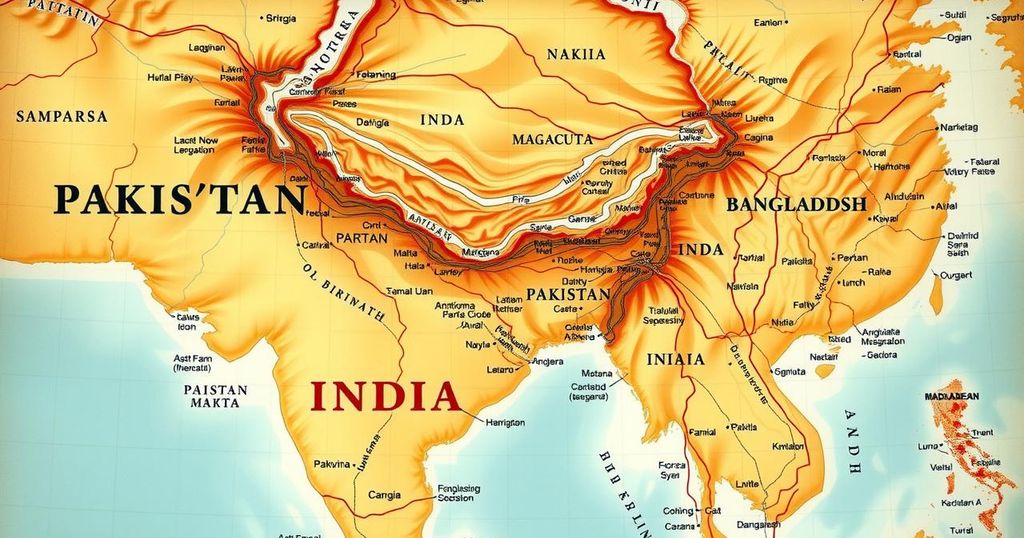Bangladesh and Pakistan: Thawing Relations Amidst India’s Concerns

Bangladesh and Pakistan are thawing relations after decades of animosity, initiating direct trade and reviving military contacts. India views this development with caution, given its own historical tensions with Pakistan. While some experts see this rapprochement as strategic, unresolved historical grievances complicate matters. The situation remains fluid as Bangladesh approaches general elections, which may lead to shifts in foreign policy.
Recent political shifts in Bangladesh have sparked closer ties with Pakistan, a historical rival, raising concerns for India. Notably, Bangladesh initiated direct rice imports from Pakistan, marking the first trading relationship in decades. Revived direct flights, simplified visa processes, and increased military contacts suggest a thawing of relations between the two nations, which have a complex history stemming from Bangladesh’s independence from Pakistan in 1971.
This renewed friendship builds on a brief warming period from 2001 to 2006 but has been largely absent under Prime Minister Sheikh Hasina’s long tenure since 2009, during which relations with India strengthened. Following Hasina’s recent departure to India amid political turmoil, former diplomat Humayun Kabir noted that the two countries are now progressing towards being “two normal neighbours.” India’s apprehensions grow as Bangladesh has not pursued the extradition of Hasina despite concerns about her alleged crimes.
Experts suggest that Bangladesh and Pakistan’s newly blossoming relationship may serve as a strategic counter to India’s influence in the region. Ayesha Siddiqa from King’s College London emphasizes a current tactical collaboration between the two nations. Additionally, military relations have strengthened, with a Bangladeshi delegation visiting Pakistan and participating in joint maritime exercises, indicating deeper military cooperation.
Veena Sikri, India’s former high commissioner to Bangladesh, remarked on the recurring themes in Dhaka-Islamabad relations, referencing earlier allegations of Indian insurgents being trained in Bangladesh during her tenure. These allegations were denied by both Bangladesh and Pakistan at the time. The porous Indo-Bangladesh border has facilitated potential belligerence from insurgent groups, thus reviving military ties between Pakistan and Bangladesh presents substantial security concerns for India.
Despite these developments, Bangladeshi diplomats maintain their stance that relations cannot be fully normalized until Pakistan addresses historical grievances, including the request for a formal apology for atrocities committed during the 1971 war. While former Pakistani military officials acknowledge the need for accountability, they also call for recognition of violence against Urdu speakers during that tumultuous period. Economists suggest that prioritizing trade could pave the way for improved relations, amidst ongoing discussions regarding bilateral trade enhancements and easing travel restrictions.
As Bangladesh approaches general elections and potential shifts in government policy, the implications for India remain significant. A stable and amicable Bangladesh is crucial for India to ensure peace in its northeastern states, making the evolving dynamics among these South Asian nations a focal point of regional security and economic strategy.
In summary, the evolving relationship between Bangladesh and Pakistan signals a significant shift in South Asian geopolitics, with potential implications for India. The two nations’ burgeoning trade and military connections underline the complexity of their historical animosities, which linger in the demand for accountability from Pakistan. As upcoming elections in Bangladesh may alter foreign policy priorities, the regional balance remains precarious. Indian policymakers must remain vigilant in navigating these developments to ensure stability in the region.
Original Source: www.bbc.com








